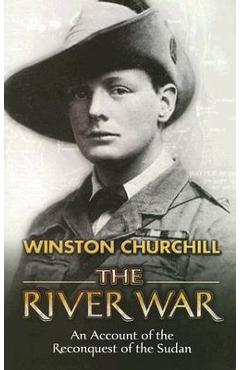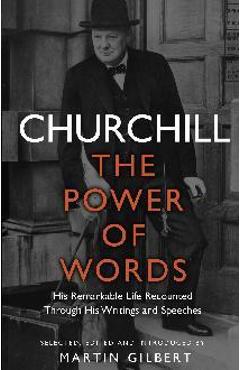The River War: An Account of the Reconquest of the Sudan - Winston Churchill

Detalii The River War: An Account
libris.ro
94.58 Lei
105.09 Lei
History
Winston Churchill
The River War: An Account - Disponibil la libris.ro
Pe YEO găsești The River War: An Account de la Winston Churchill, în categoria History.
Indiferent de nevoile tale, The River War: An Account of the Reconquest of the Sudan - Winston Churchill din categoria History îți poate aduce un echilibru perfect între calitate și preț, cu avantaje practice și moderne.
Preț: 94.58 Lei
Caracteristicile produsului The River War: An Account
Comandă The River War: An Account Online, Simplu și Rapid
Prin intermediul platformei YEO, poți comanda The River War: An Account de la libris.ro rapid și în siguranță. Bucură-te de o experiență de cumpărături online optimizată și descoperă cele mai bune oferte actualizate constant.
Descriere magazin:
Churchill\'s first major historical work is still considered one of his most riveting. -- Library Journal It\'s a great read. -- The Washington Examiner A story of heroism and glory that rivals any work of fiction, this instructive treatise on a Middle Eastern conflict was written by one of history\'s greatest figures. In The River War, Winston Churchill recounts a critical but often overlooked episode from the days when the British Empire was at the height of its power: the operations directed by Lord Kitchener of Khartoum on the Upper Nile from 1896 to 1899, which led to England\'s reconquest of the Egyptian Sudan. After the 1881 rebellion of the Mahdi had plunged the Sudan into chaos, British attempts to withdraw from the region climaxed in General Gordon\'s ill-fated attempt to rescue officials, soldiers, and Egyptian subjects from Khartoum. A decade later, the British government began its efforts in the pacification and restoration of the Sudan--a mission that succeeded within two years, at the final battle of Omdurman. Churchill was present at this decisive battle, and he wrote this book while he was still a young cavalry officer. In addition to the future statesman\'s views of the conflicts and the politics behind them, it shows how the River War altered the fates of England, Egypt, and the Arabian people of northeast Africa. Illustrated by 22 maps and plans, this treatise offers valuable insights into a historic clash of Western and Arabic cultures.

Produse asemănătoare
Produse marca Winston Churchill

We Will All Go Down Fighting to the End - Winston Churchill
![]() libris.ro
libris.ro
Actualizat in 28/10/2025
48.9 Lei

The River War: An Account of the Reconquest of the Sudan - Winston Churchill
![]() libris.ro
libris.ro
Actualizat in 28/10/2025
94.58 Lei



